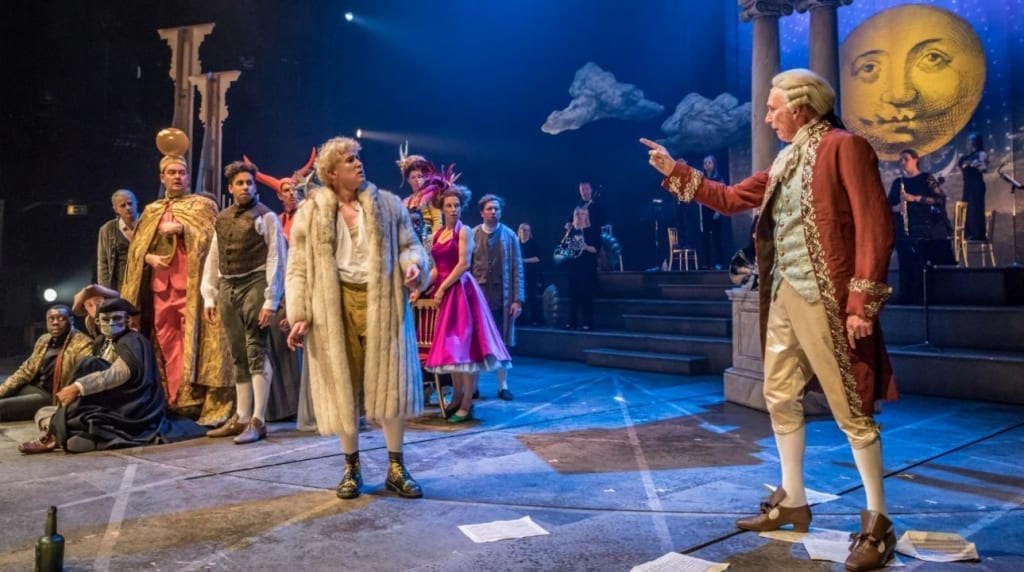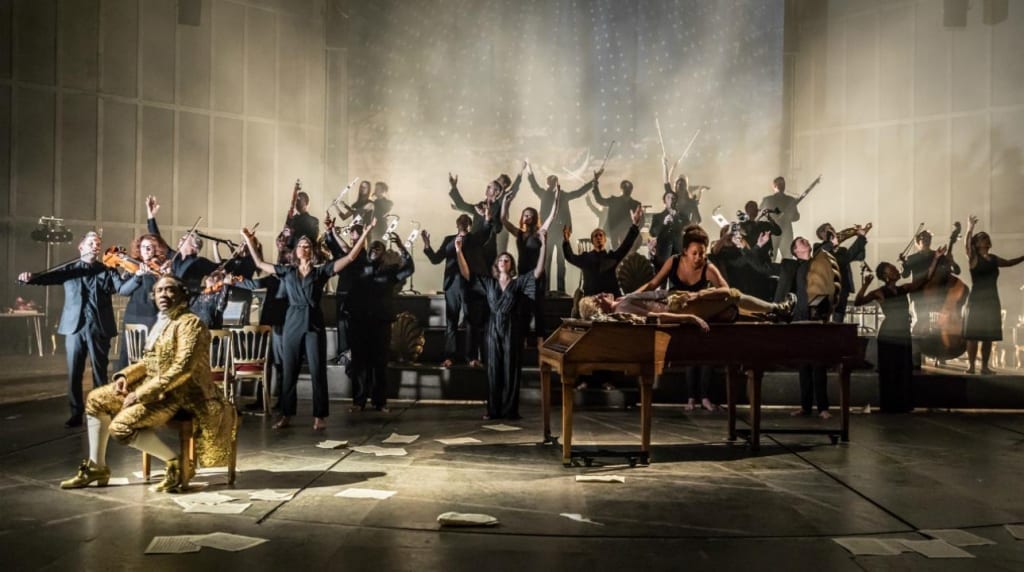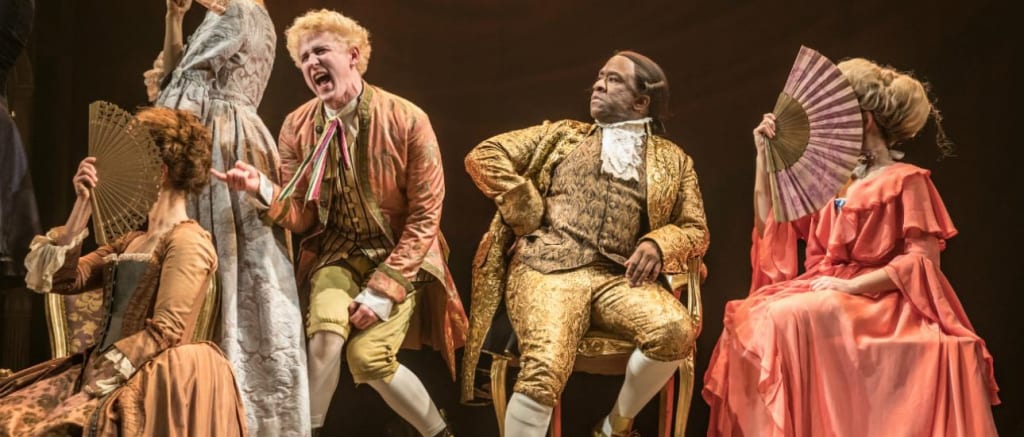Peter Shaffer’s multi-award winning play first opened at the National Theatre in 1979 and on Broadway in 1980. This revival, directed by Michael Longhurst, is outstanding. It is a riveting production that is both imaginative and totally engrossing.
The fictionalised narrative comes in the form of a deathbed confession by Antonio Salieri, who is six years Mozart’s senior. At the time, Salieri is the all-powerful musician of the Habsburg Court, in Vienna, ‘the City of Slander’, as he hastens to inform his audience. His position, as Court composer, teacher and director of the Italian opera, for the Emperor Joseph II of Austria, gives him the position and power to engineer Mozart’s descent into penury and early death.
Lucian Msamati’s mesmerising performance as Salieri is clearly a man enthralled to the highest ideals of music. From the age of 16, Salieri is possessed by a burning desire to produce ‘absolute music’ and eagerly surrenders himself to what he regards as ‘God’s art’, dedicating himself to the creation of music that will ‘blaze like a comet’ across Europe. In these perfect notes, Salieri hopes to find fame and establish himself as one the greatest composers of all time. Msamati’s intense performance perfectly matches the pitch of Salieri’s passion and shatters beautifully (and punctually) upon the arrival of the young upstart, Mozart.

Salieri’s rage drives much of the plot. His fury at Mozart, the ‘filthy creature’, and ‘obscene boy’ – whom Salieri deems utterly unworthy of being God’s chosen conduit to produce divine music – appears unquenchable. Outmatched by the peerless brilliance of Mozart’s perfect musical score, Salieri lets the manuscript slip through his fingers in a climatic moment that registers Salieri’s epiphany: that he may defeat Mozart, the clumsy overgrown child, but he cannot rival the supremacy of Mozart’s music.
Shaffer’s Salieri is truly a tragic hero of Shakespearean dimensions. The audience bears witness to the internal struggle of Salieri’s soul and its total capitulation to relentless and remorseless jealousy. Salieri’s crushing obsession is, like Msamati’s performance, all-consuming. As a result, the audience is as emotionally invested in Salieri’s mission to destroy his talented adversary as he is.
Adam Gillen’s Mozart, bleached blond, and without a wig (even when in the audience of the Emperor), conjures an awkward hyperactive teenager who is somewhat dim-witted in the niceties of social etiquette but is nonetheless a towering musical genius.

Adelle Leonce delivers an extremely promising performance as Constance, Mozart’s love and later wife. Matthew Spencer’s Joseph II delightfully projects an intellectually limited Emperor with a touch of youthful humour.
Michael Longhurst’s direction ingeniously integrates the excellent the 20-strong Southbank Sinfonia musicians into Salieri’s unfolding recollection. Dressed in plain black casual outfits, members of the orchestra echo the narrator’s turmoil and moments of triumph.
Chloe Lamfort’s set, together with Jon Clark’s lighting invoke both the conservatism and decadence of 18th-century Vienna. This is an epic production that must not be missed.

